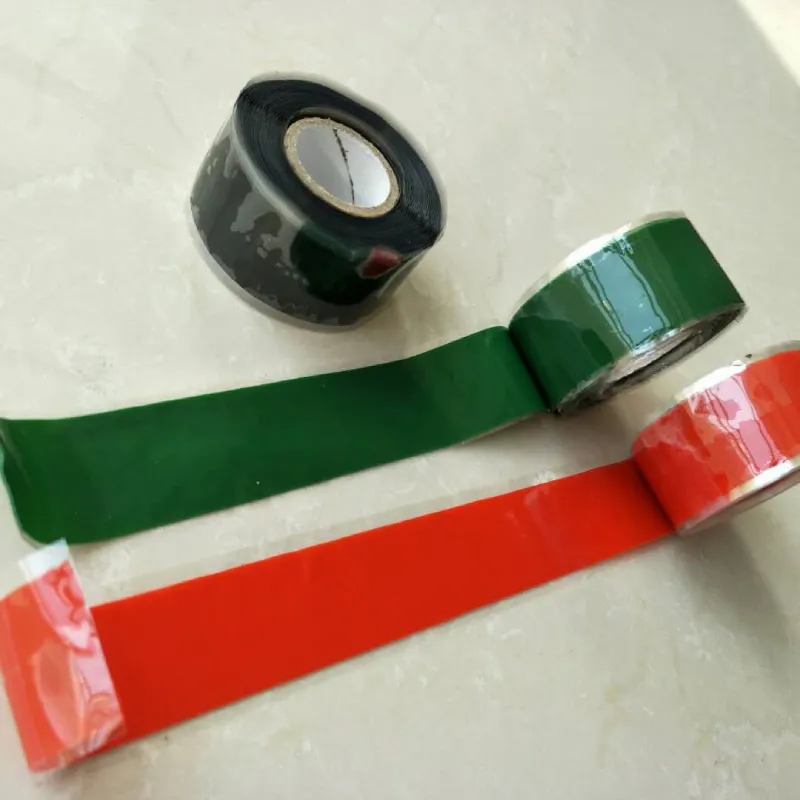Types of Electrical Insulation Tape
Electrical insulation tape is a crucial component in the world of electronics and electrical engineering. It is an adhesive tape that's designed to insulate electrical wires and other materials that conduct electricity. The purpose of this insulation is to prevent electric shocks, short circuits, and ensure the safety and reliability of electrical devices. Given its importance, it's vital to understand the different types of electrical insulation tape available, as each type serves specific applications and environments.
1. PVC Insulation Tape
Polyvinyl Chloride (PVC) insulation tape is one of the most commonly used types of electrical tape. It is favored for its versatility, durability, and flexibility. PVC tape is resistant to abrasion, heat, and moisture, making it suitable for both indoor and outdoor applications. It can handle a wide range of temperatures, typically from -10°C to 80°C, and adheres well to a variety of surfaces. This tape is often used in electrical wiring and harnessing applications, as well as for color coding wires.
2. Rubber Insulation Tape
Rubber insulating tape is another widely used type of electrical tape. It is constructed from a layer of rubber, offering excellent elasticity and resistance to water, making it ideal for outdoor use. This type of tape retains its insulating properties even when stretched, making it perfect for high-tension applications. Rubber insulating tape is typically used in electrical repairs, particularly for wrapping connections and joints in wiring.
3. High-Temperature Insulation Tape
For applications that involve extreme temperatures, high-temperature insulation tape is essential. This type of tape is specifically designed to withstand temperatures well above 100°C. Various materials, such as silicone, polyester, and Teflon, are used to create high-temperature tapes, providing excellent thermal resistance. These tapes are frequently employed in automotive applications, as well as in electrical manufacturing processes that involve heat.
electrical insulation tape types

4. Self-Fusing Silicone Tape
Self-fusing silicone tape is a relatively recent innovation in the realm of electrical insulation. Unlike traditional tapes that rely on adhesives, self-fusing silicone tape bonds to itself when stretched and wrapped around a surface. This feature allows for a watertight seal and high resistance to heat, moisture, and chemicals. It is extensively used in repairing cables, pipes, and even in sealing wires in outside conditions, providing a durable and long-lasting solution.
5. Kapton Tape
Kapton tape, made from polyimide film, is known for its exceptional high-temperature resistance and electrical insulation properties. Commonly used in the electronics industry, this tape can withstand temperatures up to 260°C and is often utilized in applications such as motor insulation, wire harnessing, and PCB applications during the manufacturing process. Its thinness and excellent dielectric strength make it an invaluable tool in precision electronics.
6. Fabric Insulation Tape
Fabric insulation tape features a cloth base coated with a pressure-sensitive adhesive. This type of tape is often used in automotive and electrical industries for wire wrapping and bundling. Its texture provides an excellent grip, while its insulation properties are quite effective. Furthermore, fabric insulation tape can also be found in a variety of colors, serving both functional and aesthetic purposes.
Conclusion
Understanding the different types of electrical insulation tape is essential for anyone working within the electrical or electronics fields. Each type offers unique advantages, making them suitable for various applications. Whether it’s the flexibility of PVC tape, the high-temperature resistance of silicone tape, or the self-fusing properties of advanced insulating tapes, selecting the right product is crucial for maintaining safety and efficiency in electrical systems. Hence, investing in the appropriate insulation tape can ensure optimal performance and longevity of electrical installations.
-
XIANGFAN Rubber Tape-Ultimate Solutions for All Your Insulation NeedsNewsJun.24,2025
-
XIANGFAN Rubber Tape-Protection for Industrial and Residential ApplicationsNewsJun.24,2025
-
XIANGFAN Rubber Tape: Superior Safety and Sealing for Demanding EnvironmentsNewsJun.24,2025
-
XIANGFAN Rubber Tape: Reliable Solutions for Every Electrical ChallengeNewsJun.24,2025
-
XIANGFAN Electrical & Industrial Tape: Powering Reliability Across IndustriesNewsJun.24,2025
-
XIANGFAN Electrical & Industrial Tape: Excellence in Every ApplicationNewsJun.24,2025
